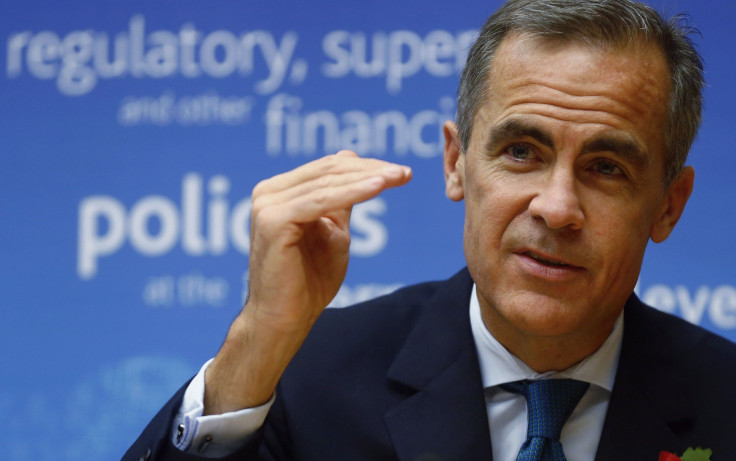Bank Of England Governor Mark Carney Urges Putting Bankers' 'Fixed Pay At Risk' To Curb Misconduct

In order to reduce “excessive risk-taking and misconduct by staff” new rules might be needed to link bankers’ fixed pay to future banking industry fines, Mark Carney, governor of the Bank of England (BoE) said on Monday. His statements come just days after a number of major global banks were fined a total of over $3 billion for the attempted manipulation of benchmark rates in foreign exchange markets.
“Last week, the U.K.'s Financial Conduct Authority, US CFTC and Swiss FINMA fined six banks $3.3bn for misconduct in FX markets -- misconduct that went on long after banks had already been fined for abusing interbank interest rate benchmarks,” Carney said, in a speech in Singapore on Monday morning, adding that additional measures are needed to rebuild the public’s trust in financial institutions.
“Standards may need to be developed to put non-bonus or fixed pay at risk. That could potentially be achieved through payment in instruments other than cash,” he said. “Senior manager accountability and new compensation structures will help to rebuild trust in financial institutions.”
Carney cited a proposal by William Dudley, president of the Federal Reserve Bank of New York, in which the latter reportedly suggested the creation of a “performance bond” for senior officials so that when regulatory fines are levied against a bank, a “sizeable portion” is deducted from the compensation offered to these senior managers.
“The succession of scandals means it is simply untenable now to argue that the problem is one of a few bad apples. The issue is with the barrels in which they are stored,” Carney said. “Leaders and senior managers must be personally responsible for setting the cultural norms of their institutions.”
He added that the U.K.’s Fair and Effective Markets Review -- announced by the government in June --“will explore ways to improve market transparency, competition and trading infrastructure.”
Carney also argued that though progress has been made -- since the 2008 financial crisis -- in making the system safer, simpler and fairer, steps are still needed to ensure a trusted and open system.
“We must now consolidate our progress to build a financial system that can deliver strong, sustainable and balanced growth for all economies -- large or small, advanced or emerging,” he said.
© Copyright IBTimes 2025. All rights reserved.





















